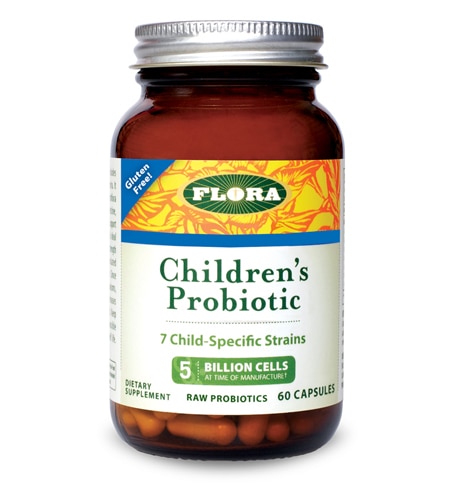In recent years we've heard a lot about the importance of having and maintaining healthy gut bacteria. This is an integral part of healthy immune function and affects not only digestion but overall quality of health. Many aspects of modern life are detrimental to the state of our intestinal bacteria. Poor diet, illness, stress, lifestyle, and antibiotics can all have significant impact on your gut health in negative ways.
Why is gut health important?
Intestinal bacteria, when healthy and in balance, are an essential part of metabolic function, aiding in the digestion of cellulose, undigested food and dietary fiber. They also provide essential nutrients to the body, synthesize vitamin K, and promote angiogenesis and enteric nerve function[1].
There are also specialized bacteria that vary in their function, some performing the reduction of harmful substances like nitrates and sulfates. Overall, gut bacteria are important not only to the normal functioning of the digestive system but also by contributing a large part of the immune system defenses.
What determines gut bacteria?
When we are born, commensal bacteria begin to colonize immediately, consisting of nearly one thousand unknown species. These bacterial colonies are not only immensely different from those found in adult systems but vary greatly between individual infants.
By about one year of age, bacterial colonies have stabilized into that which is more similar to adult colonies. The introduction of solid foods plays a big part in the transitional process.
Our intestinal bacteria then becomes determined by myriad of factors through life including genetic programming and our nutritional intake. Detriments to our gut health are often caused by antibiotics, stress, and poor eating habits leading to more significant health risks including Irritable Bowel Disease, diabetes, and cancer.
How do you promote healthy gut bacteria?
It has been proven that the diet you choose to adapt significantly influences which gut bacteria colonize and at what rate. Whether you choose a high protein diet or a plant-based diet, digestive bacteria will react accordingly to aid in efficient digestion of your dietary intake. Foods rich in fiber and polyphenols have been found to be beneficial to gut bacteria.
The regular use of prebiotics and probiotics can stimulate growth of various beneficial gut bacteria helping create a healthier system overall. Probiotics have a high rate of successful assistance in healing for many diseases including inflammatory bowel conditions and infections[2].
Who might benefit from gut health assistance?
Adults and children can all benefit from adopting a healthy balanced diet rich in fiber to promote healthy gut bacteria. Yet, obstacles such as high stress levels, decreased nutritional content in processed foods and even well-advised antibiotic use can affect populations of healthy bacteria in our bodies.
While adults have an easier time taking a daily probiotic supplement and incorporating fermented foods like yogurt into their diet, it can be more challenging for children.
Beyond yogurt, there are some child-friendly options available that can help promote a healthier gut bacteria without fighting or fuss. From chewable flavored tablets to tasty mix-in powders or liquid drops, there are many products available over the counter.
You can also incorporate probiotic foods (including fermented foods) into your family’s diet. Although kimchi and sauerkraut may not be your child’s favorite, you can make fermented ketchup at home and you child will be none the wiser – we all know how kids will put ketchup on almost anything.
Fermented Ketchup
Makes 1 pint
Ingredients
12 oz. organic tomato paste
3 Tbsp. raw honey
3 Tbsp. raw apple cider vinegar
2 Tbsp. whey (not powdered)
1/4 tsp. onion powder
1/4 tsp. salt
1/8 tsp. ground black pepper
Directions
- In bowl, mix together all ingredients. Add to air-tight mason jar.
- Let jar sit at room temperature for 2-3 days (only open if you notice a build up of gasses, then release gasses and close tightly again).
- Place jar in your refrigerator for 3 more days.
- After the fermenting process ketchup should be kept refrigerated and will last 3-6 months





